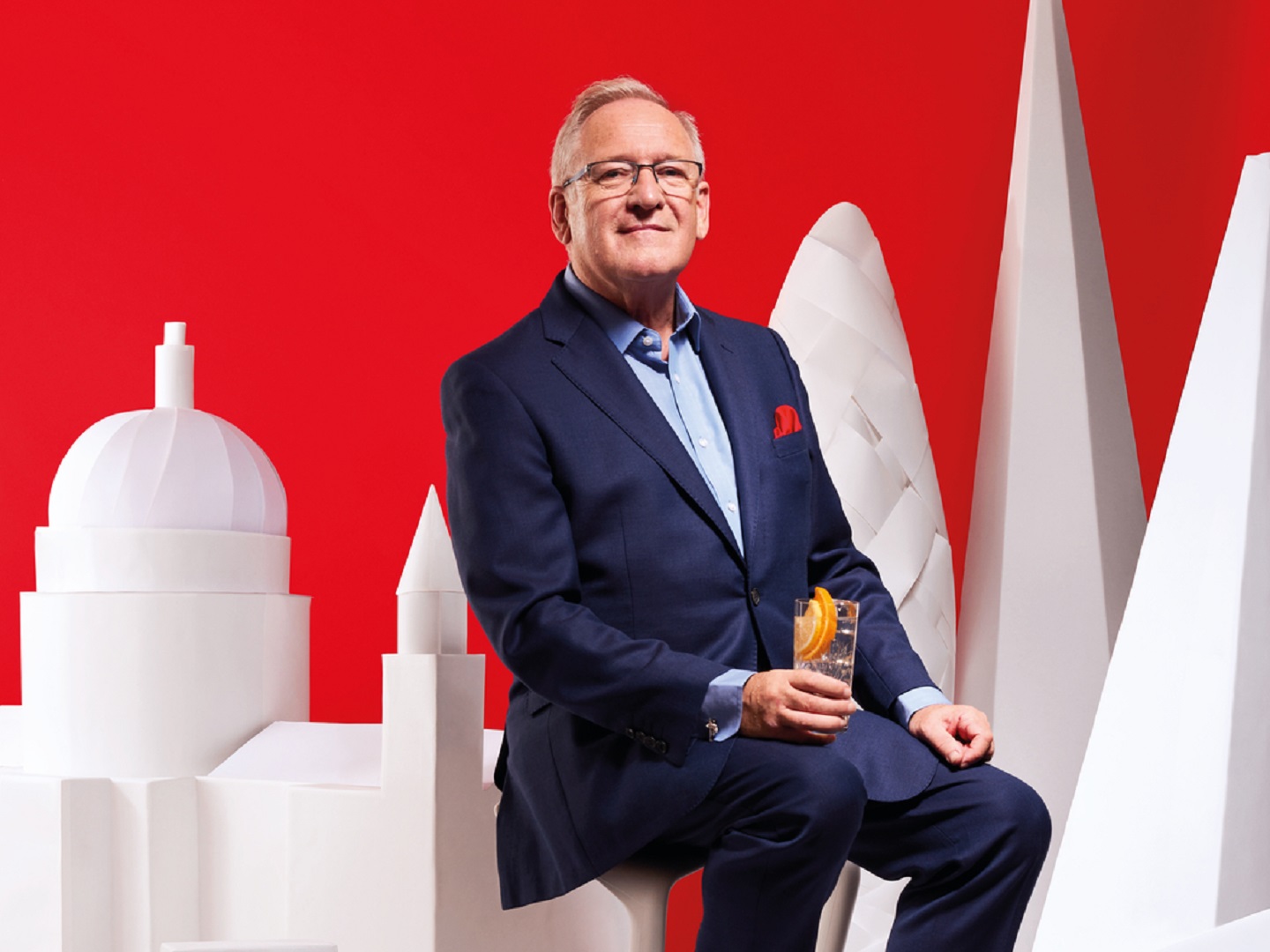
Payne is undeniably one of the most distinguished figures in the world of gin (All photos: Beefeater London)
Desmond Payne took off his coat, draped it over a stool and got behind the bar in one of the lounges at Beefeater London’s distillery in Kennington. He approached the tall glasses laid out on the countertop and began sloshing a generous amount of Beefeater London Dry Gin over the ice cubes, stopping short at a little over the quarter mark. A lemon wedge was deposited into each glass and the concoctions were swizzled with a steady stream of carbonated tonic.
“Are you very particular with your tonic water?” someone from our party asked.
“It makes a difference,” the master distiller replied (he favours Fever-Tree, if you must know). “Everything you do makes a difference.”
The late spring weather was warm and benign, without so much as a hint of that infamous London rain. “Cheers!” Payne said, raising his glass. “And welcome to our distillery.” The cold drink served as a fantastic refresher — clean and crisp with a big juniper character and strong citrus notes. Our Beefeater distillery tour was off to a great start.
At 75, the Englishman is quick-minded and sprightly, often interjecting a dialogue with a witty remark or two that prompted a collective chuckle. Payne has been in the gin industry (gindustry, if you will) for over 50 years, more than half of which with Beefeater. He is undeniably one of the most distinguished figures in the world of gin, having received a Lifetime Achievement Award from the Gin Guild and been made a Member of the Order of the British Empire in 2018.
beefeater_social_media_content-_exterior.jpg
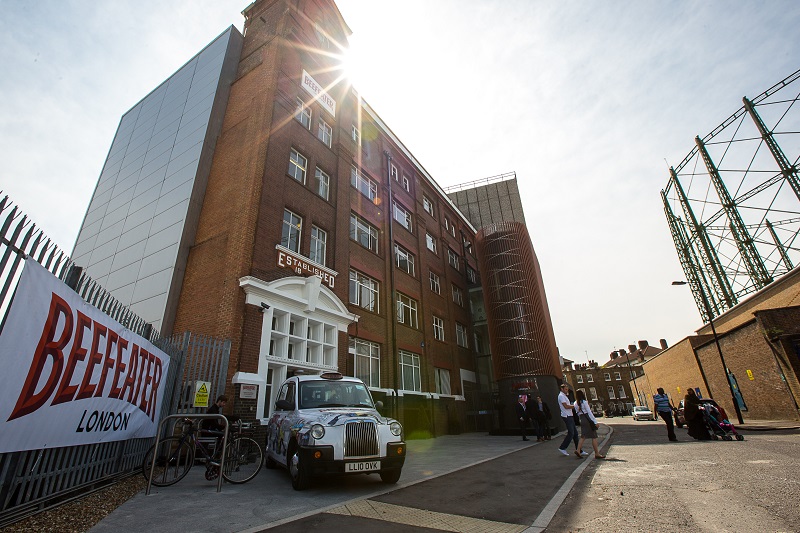
Did he start by following his head or heart? He would claim he followed his nose. Payne started his career in the wine trade, after turning down his father’s suggestion to join the army (“I’m not going to the army!”). He went to pick grapes in Bordeaux, France and worked in the wine cellars at Harrods, where he learnt about taste and smell. Payne later moved to Seager Evans & Co, wine shippers that also owned Plymouth Gin, and spent time learning the ropes in every department before joining the distillery as part of his training. “That’s what really got me interested. All the aromas, the botanicals were captivating.” He spent half a decade at Plymouth and made his way to the top as distillery manager before being chosen to succeed Brian Martin as master distiller upon the latter’s retirement at Beefeater in 1995.
We sauntered through the distillery with Payne, who gave an account on the slightly manic history of gin. He described how it went from a heavily vilified spirit in the 18th century (one of the most appalling tales was about a silk-thread spinner driven so utterly mad by her addiction that she abandoned her child to die and sold the babe’s clothes to purchase a quartern of gin. She was promptly sentenced to death by hanging) to being an essential cargo for British sailors — at the time when the G&T and Gimlet were born — and now one of the world’s most celebrated liquors.
Beefeater has always produced exemplary London gin since its founder, James Burrough, bought over The Chelsea Distillery in 1863. Burrough, who was also a pharmacist, churned out a bevy of liqueurs, fruit gins and punches and counted the prestigious Fortnum & Mason among his customers. His sons eventually took over and moved production to Hutton Road in Lambeth before settling at Montford Place in Kennington to keep up with the growing demand.
In the 1960s, under the leadership of Burrough’s grandson, Beefeater boomed in the US, accounting for three out of four bottles of imported gin. It remained a family business until 1987, when it was sold to Whitbread and ultimately acquired by Pernod Ricard in 2005. Beefeater is the only international gin still made in London.
beefeater_social_media_content-_market_place.jpg
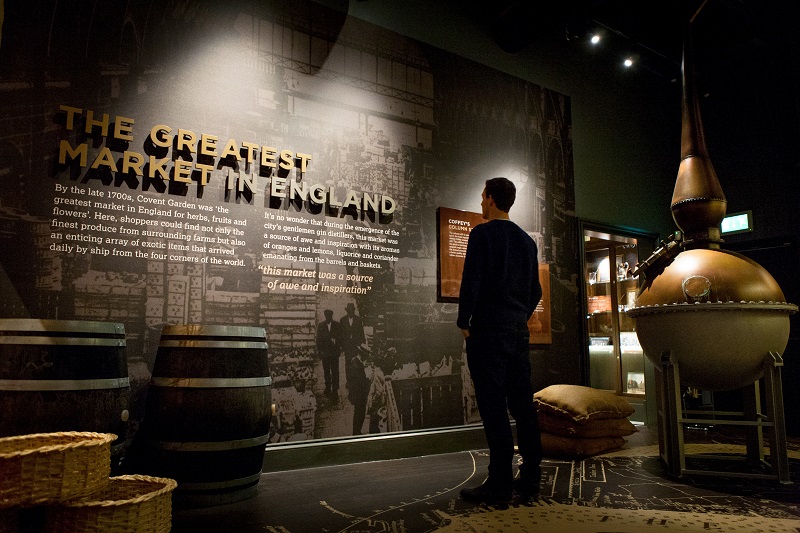
We passed through a chilled storage space where sack upon sack of botanicals are kept before arriving at an area where guests can have a touch and feel (and whiff) of the samples. More than 150 years have passed, yet Beefeater still makes its signature gin according to Burrough’s original recipe.
“There’s a picture of James Burrough on the wall in my office staring at me to make sure I don’t change it,” Payne joked. He crushed a few juniper berries in his palm with his thumb, nosed them and encouraged us to do the same while paying attention to the oils and piney aroma being released. The berries are grown wild on the slopes in Italy and Macedonia. As such, crops vary from year to year. One of Payne’s roles as master distiller is to seek out the best samples from each harvest to create the exact blend of berries that is required.
The same inspection is done for the eight other essential botanicals: bitter almonds, lemon peel and Seville orange peel, orris root, liquorice root, coriander seeds, and angelica seeds and root. They are steeped in neutral alcohol for 24 hours before being distilled.
Asked how he manages to stay true to the original recipe, Payne emphasised two points. “The hardest thing about my job is to make sure every bottle of Beefeater gin is the same. We are able to achieve that partially because we are a big brand. We look at 200 samples of juniper and maybe choose only five of them. If you’re a small brand, it’s very hard to do that. Second, paying attention to details. Be careful if you change anything because, suddenly, that little change can make a big difference in the far end.
beefeater_social_media_content-_stills.png
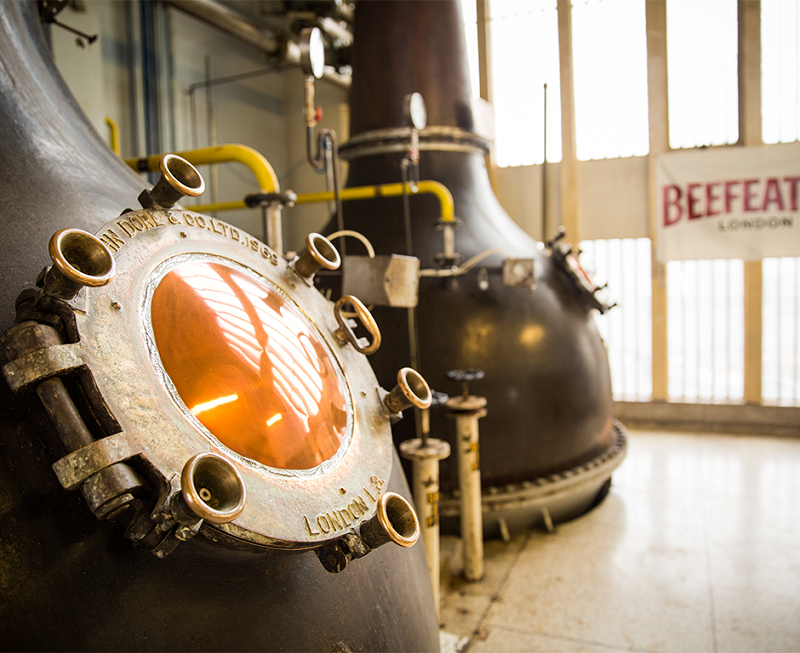
“When we put in that new still two years ago, we did a lot of trials,” he said, referring to the large copper equipment in the distillery room. “It’s got the same shape, same copper, same everything as the first one, which we had for 50 years. We did a lot of trials to make sure the gin coming out of that new still is exactly the same as its grandparents.”
Payne said making gin is anchored by the “what” and “how” and a world of variety opens when one toys with any of the two. “The time I realised that one little change can make a difference was our Monday’s gin.”
Beefeater’s signature gin is usually steeped for only 24 hours, but for Monday’s, that is done over the weekend for a total of 72 hours. It packs a generous punch, with juniper and coriander leading the nose with an earthy, peppery hit at the end. “It’s exactly the same recipe, but the gin is different.” This can also be said of the Beefeater 24, Payne’s inaugural creation — “my first child” — with the brand. The sophisticated blend adds grapefruit peel, Chinese green and Japanese sencha tea to the mix, resulting in a fresh and refined flavour profile with a mellow depth.
The human element is essential to Beefeater. Believe it or not, there are only five staff members operating the entire distillery. While it employs many modern technologies, some old-fashioned apparatuses remain, such as the manual scale, which is used to weigh the botanicals. Why not something electronic? “It makes you pay attention,” he winked.
beefeater_social_media_content-_desmond_payne_1.jpg
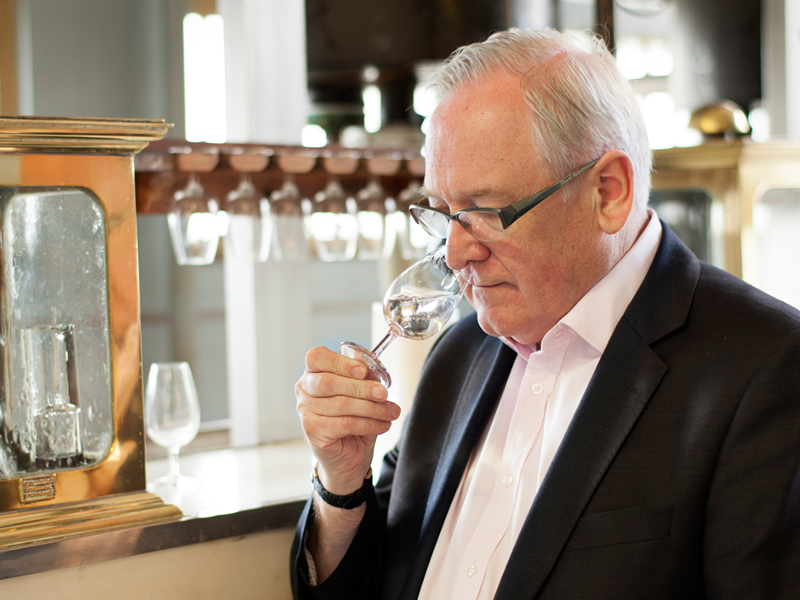
The human element extends to Beefeater’s relationships, too. Payne has been dealing with the same supplier from Burrough’s time, albeit many generations down. In his lived-in office, he gestured to a shelving unit displaying a variety of books, ledgers and gin-related accoutrements. “I’ve been looking through the archives and, in the back of one of those books, in James Burrough’s handwriting, was a list of botanicals and their prices from the same supplier. I snapped a photo and brought it to the review meeting and said, ‘I’m just a bit concerned about the way prices have gone up.’” Worried his client might be upset, the supplier tried justifying the price, until he read the note. “Hang on a minute ... this is from 1897!”
“There’s a huge element of trust,” Payne said as the laughter died down. Then, more seriously, “It’s something that disappears from business these days.” The past 2½ years have not been easy, with the disruption of Covid-19. “It impacted our company in a number of ways. A lot of people were sick and working from home. But we never stopped. We segregated people but kept the distillery going.
“One of our big markets is Spain and all the bars and businesses went overnight, so we lost huge. We’re back now and even better than we would’ve been had we not taken the year out, but what we learnt is the supply chain is very short. The advice that people give of not holding more than what you need for next day’s production? Dangerous. We need to have stocks. We’ve got two years’ worth of juniper, always have. But I started buying coriander pretty quickly when the Ukrainian situation escalated [while Beefeater does not source its coriander from Russia or Ukraine, the latter is a big producer] because the whole world’s market changes.”
beefeater_social_media_content-_our_craft.jpg
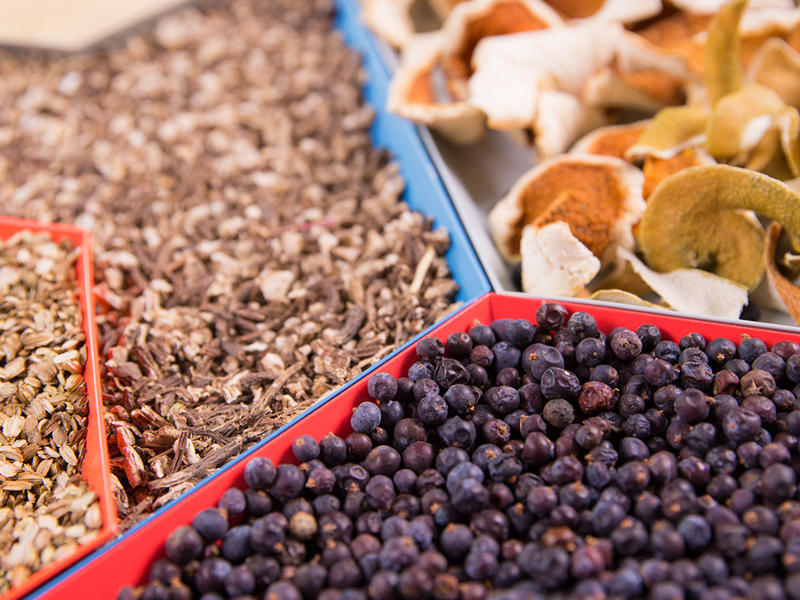
Payne said producing gin was only half the journey. Often times, the other half is met by bartenders. “To watch a bartender create a cocktail in front of your eyes is such a pleasure,” he enthused. “There’s a bar in London, The Connaught, which virtually became the best bar in the world. And I hadn’t been to The Connaught in years. With the lockdown and everything else, I wasn’t going anywhere. A couple of weeks ago, I went in and sat near the bar and, suddenly, Agostino [Perrone], the head bartender came rushing out. ‘Oh, Desmond! I haven’t seen you in ages! How are you?’ I couldn’t pay for a drink, sushi kept arriving. It was fantastic. You know, these guys have become friends. We have a common interest, and they’re good people.”
Excited, Payne began to list some of his favourite spots for a drink. “Either you go for classic, like The Connaught or Dukes Hotel, which is famous for its martinis, or some of the new-style bars. One of my favourites is Happiness Forgets — it’s a little dive bar and there’s no fuss. They just produce damn good drinks and that’s what I like. One of my favourite bars in all the world is in Barcelona. It’s called Boadas and it originally came from Floridita in Havana, Cuba. It’s not flashy, not fancy. When you go in there and have a drink, there are just people coming in from work in their overalls ordering cocktails. It’s just lovely. I love the atmosphere. And they do it with ultimate skill. I want to die in that bar.”
The conversation naturally segued to Payne’s love of exploring the world. “I love travelling, whether on business or not. And I enjoy food and drink. Our philosophy is stay cheap, eat well,” he chuckled. “Business travel gives me a little feel for the country, and I come back to explore more. I’ve had holidays in Peru and New Zealand as a result of business trips. I want to go to Mexico again. And I’d love to get on local buses and trains and spend a couple of weeks in Austria. I love just exploring new territory, or a new gin, or a new restaurant, or making new friends.”
beefeater_frozentonic_1350px.jpg
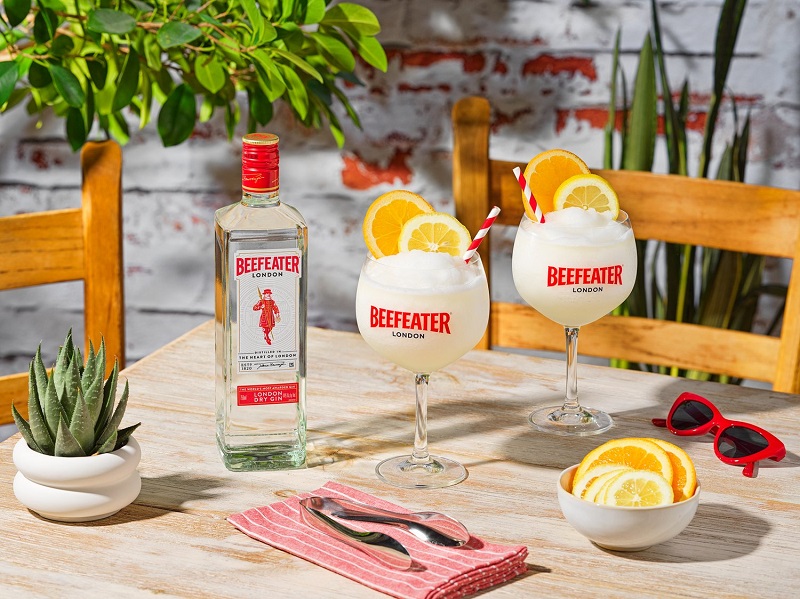
With a smile still on his face, Payne took some time pondering about the industry’s future. “There is still a long way to go,” he began. “I think we will continue to see new styles of gin developing. I used to be pretty much a purist and now I realise with things like our flavoured gin, there are many more dimensions available. Our Burrough’s Reserve is cask-aged. Gin, of all the spirits, has the ability to move with the times as required. It is versatile. Wine is grape, whisky is grain, tequila is agave and rum is sugarcane. But with gin, it’s whatever you damn well want.”
Payne is excited about the re-release of Beefeater’s Crown Jewel, which was originally launched in the travel retail market some years ago. The premium gin is returning partly by popular demand.
“The bartenders were disappointed when it discontinued,” he teased. “We also saw gin motoring towards the super-premium, so we just want to get back in there properly.” Crown Jewel is brilliantly balanced with a harmonious swirl of juniper, citrus and pepper, but it is the floral parma violet notes from the generous use of orris root that truly set it apart.
“I love my job!” Payne proudly declared, though at 75 years of age, retirement is imminent. He looked out the window, the evening light casting a gentle glow on his deeply lined, benevolent countenance. “When I officially do retire, I’ll still be involved in some capacity for a while. Let me out gently, you know.
“I was mentioning this to somebody earlier. When I was at Plymouth Gin, the guy who was the boss at the time — he had been there all his life and had a wonderful expression — said, ‘The graveyards are full of indispensable people.’ So, in other words, things carry on and they will.
“But you can always leave a legacy, can’t you?”
This article first appeared on Aug 1, 2022 in The Edge Malaysia.


